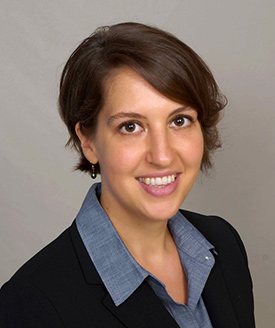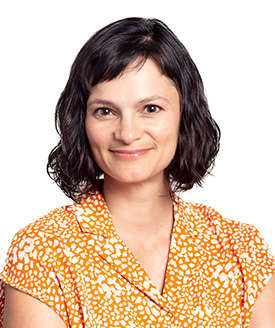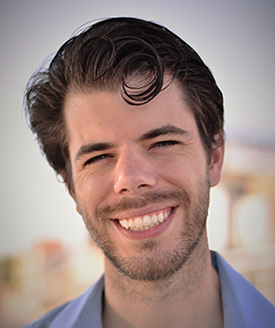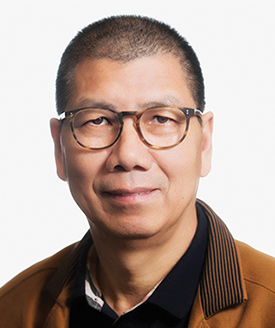December 9, 2019
New ChemE faculty bring expertise in data science, advanced materials, and systems biology

Stéphanie Valleau, Assistant Professor of Chemical Engineering
Stéphanie Valleau joined the ChemE faculty in fall 2019 after having completed a postdoctoral fellowship at Stanford University, sponsored by the Simons Collaboration on the Origins of Life. Stéphanie works at the intersection of chemical engineering, computer science, and biophysics. Her expertise will help advance the department’s strategic data science initiative.
Stéphanie has hit the ground running, teaching the reactor design course in fall quarter — revising it to include some Python programming — and beginning to build her research group. At the UW, Stéphanie is looking to leverage computing resources such as the supercomputer Hyak to advance her work. She is excited about starting new collaborations with faculty working on clean energy materials, drug design, and data science methods.
In one line of research, she aims to enable more-rapid reaction design by combining deep learning and computational chemistry approaches. Given the large cost of atomistic simulations, she wants to identify the level of theory needed and the features required to predict kinetics in cycles and networks of reactions using machine learning.
Stéphanie’s other big research idea relates to photosynthetic bacteria and builds off her previous work understanding how light-processing structures in those organisms evolved over time. It may be a bit unusual for a chemical engineer to delve into deep time and evolution, but she sees potential applications to the most modern of problems: creating energy for billions of people with minimal harm to the environment. By understanding what genetic mutations were preserved over time that allow the bacteria to process light as they do today, then it should be easier to design artificial photosynthetic complexes for solar fuel production.

Neda Bagheri, Assistant Professor of Chemical Engineering and Biology
Neda Bagheri comes to UW from Northwestern University, where she was a professor and director of the Modeling Dynamic Life Systems (MoDyLS) Lab. She now splits her time between UW and the Allen Institute for Cell Science. Neda employs machine learning, dynamical systems, and agent-based modeling strategies to explain unique biological observations. Her interdisciplinary projects aim to elucidate, predict, and ultimately control biological response in the context of disease.
In a recent study, for example, she and her team used machine learning to rapidly synthesize, measure, and analyze spherical nucleic acid (SNA) structures. SNAs hold promise as a new class of individualized medicines, as researchers can design the structures to shut off particular genes and cellular activity.
Neda received a National Science Foundation CAREER Award in 2017 and is recognized internationally for her leadership and service in the field of computational and systems biology. She is passionate about outreach and is planning a children’s science book series for K–5 students. She also designed a science policy course for engineers to encourage active science citizenship and promote effective science communication.

Chad Curtis, Lecturer of Chemical Engineering
Chad Curtis is a newly minted Ph.D. from UW ChemE. His thesis work, in Elizabeth Nance’s lab, examined the use of machine learning algorithms in conjunction with nanoparticle diffusion datasets in the design of nanoparticle therapeutics. He is both a passionate engineer and data scientist, and will be teaching courses that help integrate the two — including the DIRECT course series in software engineering and data science.

Jun Liu, Professor of Chemical Engineering and Materials Science & Engineering
Jun Liu joins the UW from Pacific Northwest National Laboratory (PNNL), where he served as the director of Energy Processes and Materials Division, leading a team of 200 staff and an annual budget of more than $60 million in research.
Jun’s research addresses the fundamental challenges of materials synthesis and applications, battery innovation and energy storage. As the director of the Battery500 Consortium, Jun led a team comprised of experts from national laboratories, industry and universities to develop high-performance batteries for electric vehicles that are smaller, lighter and less expensive. He hopes the multi-institutional partnership will create the most powerful next-generation lithium batteries for electric cars. Jun has been cited over 60,000 times and issued over 60 U.S. patents. He is in the top 1% of most cited researchers, a ranking he has held since 2014, according to Clarivate Analytics. He is a fellow of the Materials Research Society, the American Association for the Advancement of Science and the Electrochemical Society. He is an elected fellow of the Washington State Academy of Sciences.